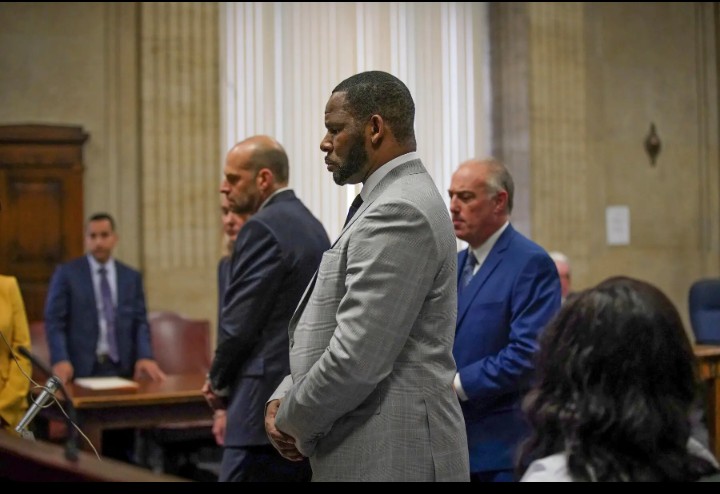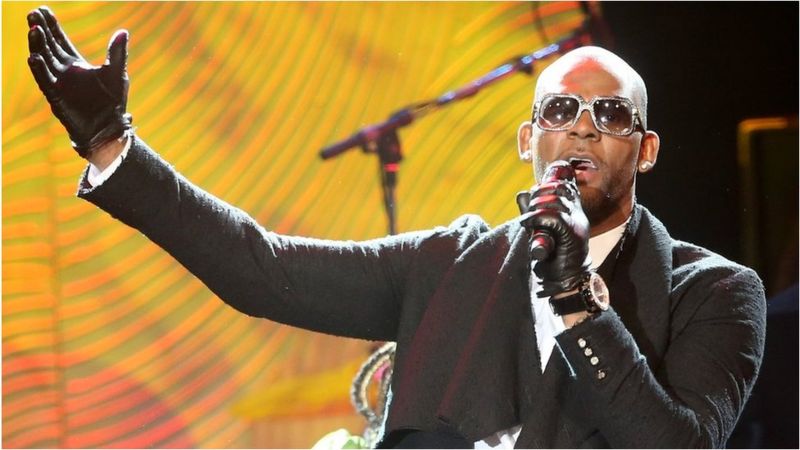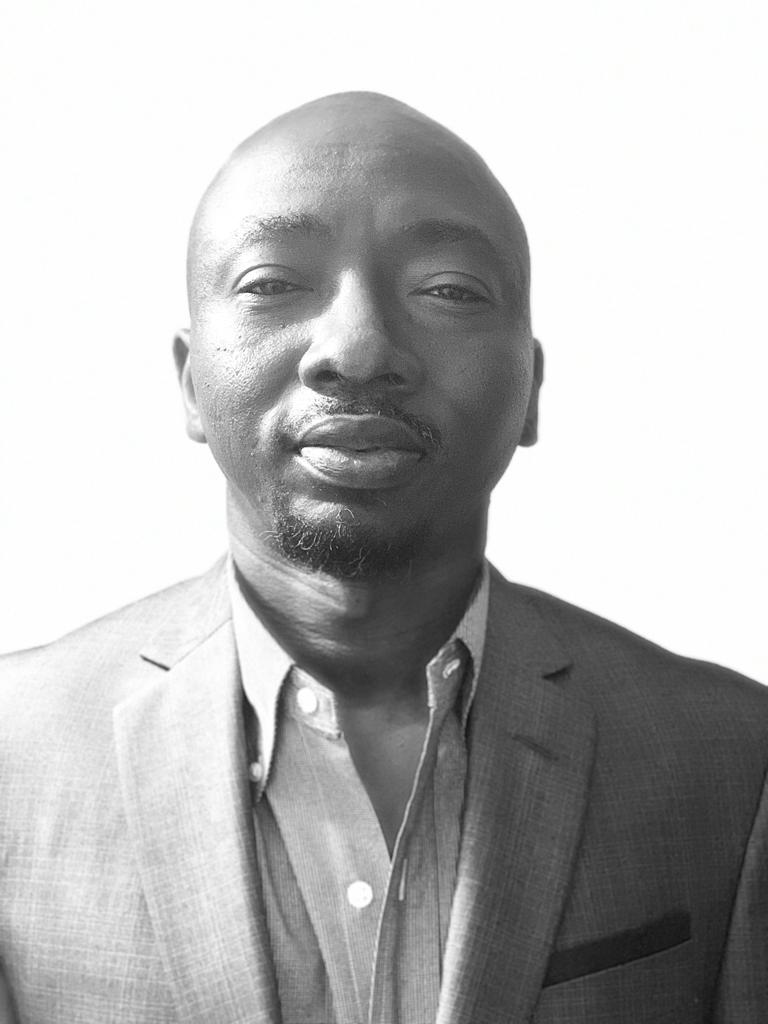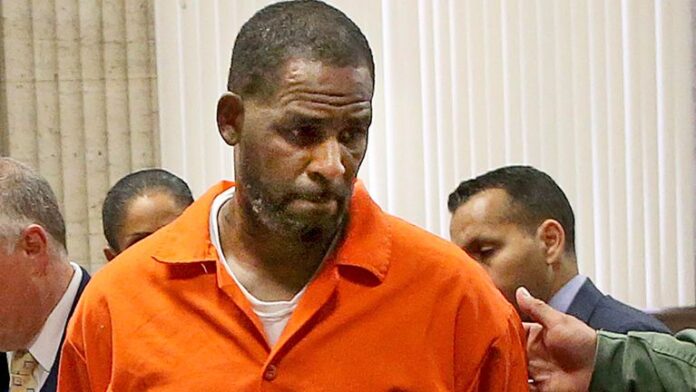Mr. Kelly’s conviction marked a stunning fall for a man who was once one of the biggest names in R&B music. It came after the first Me Too-era trial in which most of the victims were Black women. Singer R. Kelly has been found guilty of exploiting his superstar status to run a scheme to sexually abuse women and children over two decades.
Eleven accusers – nine women and two men – took the stand over the searing six-week trial to describe sexual humiliation and violence at his hands.
After two days of deliberation, the jury found the US star guilty on all nine charges he was facing. Sentencing is due on 4 May and he could spend the rest of his life behind bars. The jury found Kelly, whose full name is Robert Sylvester Kelly, was the ringleader of a violent and coercive scheme that lured women and children for him to sexually abuse.
The singer – most famous for the hit songs I Believe I Can Fly and Ignition (Remix) – was also found to have trafficked women between different US states. Along with eight counts of sex trafficking, Kelly was found guilty of racketeering – a charge normally used against organised crime associations. During the trial, prosecutors detailed how his managers, security guards, and other entourage members worked to assist him in his criminal enterprise.
The court also heard how Kelly had illegally obtained paperwork to marry Aaliyah when she was 15 in 1994, seven years before the singer died in a plane crash. The certificate, leaked at the time, listed Aaliyah’s age as 18. The marriage was annulled months later. Her 1994 debut album, Age Ain’t Nothing But a Number was produced and written by R. Kelly. One woman who testified that Kelly imprisoned, drugged, and raped her said in a written statement after the verdict that she had “been hiding” from Kelly due to threats made against her since she went public with her accusations.

But the verdict also prompted an obvious question: Women have said that the singer’s abuses began as early as the start of the 1990s — why did it take three decades for the singer to receive criminal punishment?
Here are a few possible answers: The entertainer had an expansive network of enablers around him, federal prosecutors said, from his closest confidantes and employees to many in the music industry who knew of the concerns about his behavior but did not intervene. The government drew attention to what has been described as the “settlement factory” that kept his accusers quiet, offering evidence of Mr. Kelly’s payments to women who made accusations in exchange for their silence.
And when that was not enough, Mr. Kelly “used his henchmen to lodge threats and exact revenge,” blackmailing women with nude photographs of themselves or embarrassing information, one prosecutor, Elizabeth Geddes, said in closing arguments.

Federal prosecutors also accused Mr. Kelly of paying witnesses to not cooperate with the authorities in the lead-up to his 2008 trial and acquittal. They said the singer let some witnesses know they could be “subject to physical harm” if they proceeded.
At a news conference outside the court, prosecutor Jacquelyn Kasulis said that the jury had sent a message to other powerful men like Kelly.” No matter how long it takes, the long arm of the law will catch up with you,” said Ms. Kasulis. The verdict comes 13 years after Kelly was acquitted of child pornography charges after a trial in the state of Illinois.

Author: Bunmi Johnson
New York, USA
olu20@hotmail.com














I was looking at some of your blog posts on this
website and I believe this site is really instructive! Continue putting up.Blog monetyze
I haven¦t checked in here for some time since I thought it was getting boring, but the last several posts are great quality so I guess I will add you back to my daily bloglist. You deserve it my friend 🙂
Good – I should certainly pronounce, impressed with your website. I had no trouble navigating through all tabs and related info ended up being truly simple to do to access. I recently found what I hoped for before you know it at all. Quite unusual. Is likely to appreciate it for those who add forums or something, web site theme . a tones way for your customer to communicate. Nice task..
Este site é realmente demais. Sempre que acesso eu encontro novidades Você também pode acessar o nosso site e descobrir mais detalhes! informaçõesexclusivas. Venha descobrir mais agora! 🙂
Loving the info on this internet site, you have done outstanding job on the content.
I do love the manner in which you have framed this particular situation plus it does indeed provide us some fodder for thought. Nonetheless, from what precisely I have observed, I just simply wish as the actual reviews stack on that people remain on issue and in no way start on a tirade regarding some other news du jour. Anyway, thank you for this superb piece and whilst I do not necessarily go along with the idea in totality, I value your perspective.
Good day! Do you use Twitter? I’d like to follow you if that would be okay. I’m definitely enjoying your blog and look forward to new updates.
Thanks a bunch for sharing this with all of us you actually know what you are talking about! Bookmarked. Kindly also visit my website =). We could have a link exchange contract between us!
Thank you for another informative website. Where else could I get that type of info written in such an ideal way? I’ve a project that I’m just now working on, and I have been on the look out for such information.
As a Newbie, I am continuously browsing online for articles that can aid me. Thank you
I was just looking for this info for a while. After six hours of continuous Googleing, finally I got it in your site. I wonder what’s the lack of Google strategy that do not rank this kind of informative websites in top of the list. Usually the top sites are full of garbage.